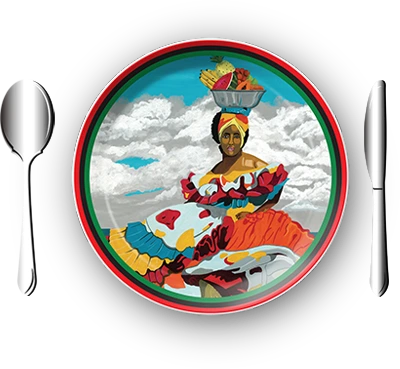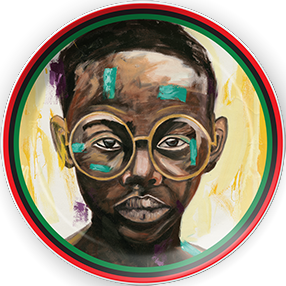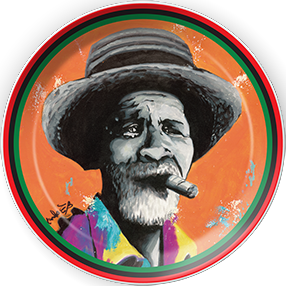Schedule Appointment
Schedule Appointment

Black history is a deep and powerful story that has transformed this world in countless ways. The difficulties of African Americans and the triumphs and contributions of Black people to the world through their struggles demonstrate resilience, creativity, and innovation. Yet, so many stories remain untold, overlooked, and forgotten. In this blog, we’ll explore little-known Black history facts, untold stories, and even some funny moments that will stress the richness of these histories. If you’re looking for a Black history fact of today or deep dives into 365 Black history facts, this blog will be your guide to uncovering the incredible legacy of Black culture.
Madam C.J. Walker, born Sarah Breedlove, is credited for being the first Black millionaire in the United States during the early 1900s due to her success in creating a line of beauty and hair products for Black women.
Before the movie Hidden Figures brought their stories to light, very few knew about Katherine Johnson, Dorothy Vaughan, and Mary Jackson, the brilliant Black women mathematicians who forged into NASA’s space race. Their contributions are right up there among the most remarkable Black History Facts.

Queen Nzinga of Ndongo and Matamba (what we today call Angola) fought against Portuguese colonization for decades in the 17th century, employing diplomacy and military tactics to protect her people. That story stands proud as one of the most empowering Black History Facts.
Before the 1921 Tulsa Race Massacre, the Greenwood District of Tulsa, Oklahoma, was a thriving Black community called “Black Wall Street.” It was one of the wealthiest African American communities in the United States. It had prosperous businesses, schools, and cultural institutions, a substantial part of Black History Facts.
Maurice Ashley, born in Jamaica in 1999, became the first Black chess grandmaster. His achievements broke much previously established ground in a game often considered esoteric, and that is probably one of the little known Black History Facts.
African American engineer Lonnie Johnson invented this water gun, and it became one of the most popular toys in the world. He worked with NASA on the Galileo mission to Jupiter, and this fact stands among a long list of inspiring Black History Facts.
Benjamin Banneker, a self-taught mathematician and astronomer, assisted in the surveying and laying out of the District of Columbia. He published almanacs that countered racial stereotypes, making such contributions an essential part of Black History Facts.
Claudette Colvin, a 15-year-old Black girl, refused to give up her seat on a bus in Montgomery, Alabama, nine months before Rosa Parks. With courage came the spark that ignited the Civil Rights Movement.
Crispus Attucks, a Black man, was the first person killed in the Boston Massacre, which was a significant event leading to the American Revolution. Thousands of Black soldiers fought in the war, some for the British side and some for the Americans.
York, an enslaved man, was a major player in the Lewis and Clark Expedition; his skills and know-how became pivotal to the journey’s success.
The Fruit Ladies are an incredible part of Black history, representing entrepreneurial spirit, community-building, and resilience. They were a group of Black women who sold fruit from street carts in many U.S. cities during the late 19th and early 20th centuries, especially during the Great Migration. These women played a key role in the economic empowerment of Black communities and street vending culture. Their fruit stands were quite common in cities like New York, Chicago, and Philadelphia, and they represented entrepreneurship among African Americans.
These fruit ladies who epitomized work ethic and business acumen. They exemplified tenacity in the face of racism and discrimination since they sold oranges, apples, bananas, and pears, among other fresh produce, to working-class families. The hardships notwithstanding, they were essential in supplying healthy, affordable food within their neighborhoods; in many respects, they became fixtures within these communities and people’s lives.
These women’s stories serve as a reminder of how critical Black women have been and continue to be to the economic and social fabric of the U.S. They helped pave the way for future generations of Black entrepreneurs, specifically those providing food service and retail.
Today, the tradition of the Fruit Ladies lives on in our The Fruit Ladies Dining Plates! Bring a piece of this history into your home with the Fruit Ladies Dining Plates as we celebrate nourishing, healthy eating, which the Fruit Ladies passionately promote. Order The Fruit Ladies Dining Plates for your home and get your healthy fruit meals, honoring their legacy simultaneously.

Ayaasuke, an African man, served as a samurai in Japan in the 16th century. He was a trusted retainer to the Japanese daimyo Oda Nobunaga. He is one of the few non-Japanese samurai in history and one of the most surprising untold black history facts.
An African American inventor, Garrett Morgan, obtained a patent for the three-position traffic signal 1923. This invention revolutionized road safety and is the basis of modern traffic lights, thus adding to some critical untold Black History Facts.
More than 200,000 Black soldiers fought for the Union during the Civil War, but their contributions are often forgotten. The 54th Massachusetts Infantry Regiment, one of the first Black regiments, became famous for its valor.
Matthew Henson, an African American explorer, was among Robert Peary’s party to the North Pole in 1909; Henson is held to have been the first to reach the pole, although his role had been somewhat diminished in importance. His incredible journey remains one of the most inspiring untold Black history facts of exploration and perseverance.
While a small number of figures like Susan B. Anthony are given their rightful and illustrious place in the annals of the history of the women’s suffrage movement, Black women like Ida B. Wells and Mary Church Terrell also labored valiantly for the cause of voting rights too were often confronted by racism within that movement. Their determination and activism stand as powerful untold Black history facts that highlight their pivotal role in shaping democracy.
James Armistead Lafayette was an enslaved man who became a spy on behalf of the Continental Army in the course of the American Revolutionary War. His intelligence work was crucial to the American victory in the Battle of Yorktown. His story is one of the most remarkable Black history facts, showcasing courage and strategic brilliance in the fight for freedom.
In 1887, Clara Brown, a formerly enslaved woman, helped found the town of Dearfield, Colorado, as a refuge for Black settlers.
Dr. Charles Drew, an African American surgeon, brought his knowledge of blood storage to the establishment of the first blood bank. In doing so, he saved millions, if not his most vigorous assertion, thousands of lives during World War II.
Mary W. Jackson, NASA’s first Black female engineer, crushed segregation and discrimination on her way to contributing mightily to the space program.
George Washington Carver is famous for peanuts, but he made over 300 products from peanuts-stuff like shampoo, glue, and even gasoline! Now, that is groundbreaking, but the variety of peanut-based products is somewhat amusing, which qualifies it as one of the Funny black history facts that can make you smile.
Moms Mabley, a trailblazing Black comedian from the first half of the 20th century, was known for her sharp wit and bold humor. She openly challenged the conventions of society and prepared the ground for other comics in a humorous manner, adding to the Funny Black History Facts.
Carter G. Woodson, initiator of Black History Month, had an unyielding devotion to education laced with humor. He would practically always be cracking jokes to make history more friendly and enjoyable for his students. His unique approach to teaching remains one of the most fascinating Funny Black History Facts.
The Cosby Show in the ’80s was revolutionary in depicting a successful Black family. Although the show has been controversial in recent years, it remains profoundly impactful as the pinnacle of television comedy that commented upon family life. It’s a prime example of Funny Black History Facts in entertainment.
Dick Gregory, a distinguished Black comedian and civil rights activist, often found humor in serious matters. Gregory’s famous routine involving the rubber chicken symbolized his offbeat comic style. His work stands out in Funny Black History Facts for blending comedy and activism.
In the 1974 comedy Uptown Saturday Night, Bill Cosby and Sidney Poitier starred with an ensemble of Black actors playing multiple roles for funny and unforgettable moments. The film is a legendary part of Funny Black History Facts in cinema.
In 2016, the first-ever Black comedian welcomed by the White House Correspondents’ Dinner was Larry Wilmore, whose performance was hilarious and provocative. His ground-breaking moment is among the notable Funny Black History Facts in political comedy.
In Living Color was a sketch comedy show that aired in the 1990s, and it involved parodies of Black culture and stereotypes to the humorous extreme so that it was nearly offensive, pushing boundaries to get a big laugh. Its impact on comedy is undeniable and a key part of Black History Facts.
Katt Williams did something spectacular; he turned a heckler into a punchline when one of his stand-up shows showed good acting and quick wit. His ability to handle live audiences remains one of the most amusing Funny Black History Facts in stand-up comedy.
Kevin Hart’s viral moments and specials have made him one of the funniest and most successful comedians. His dominance in digital and mainstream media is an essential part of Funny Black History Facts in modern comedy.
Black History Month is a time of celebration for the rich contributions that African Americans have made throughout history. For students, learning these facts provides valuable insights into the past and inspires future generations to continue the fight for equality and justice.
One of the most significant figures of Black history is George Washington Carver, who formulated over 300 products from peanuts and thus helped farmers not to grow only one crop. Another inspiring figure is Maya Angelou, a poet, author, and civil rights activist whose strong words inspire millions of people.
Rosa Parks, known as the “Mother of the Civil Rights Movement,” made history when she refused to give up her seat on a segregated bus, sparking the Montgomery Bus Boycott. And Martin Luther King Jr., who led the charge for civil rights with his philosophy of nonviolent protest, left an enduring legacy that continues to influence social justice movements today.
To make learning fun, explore Black History Facts for Students Dining Plate, a great way to introduce kids to significant historical moments while enjoying a meal with family or friends.

Black barber shops have profound historical meaning in African American communities of activity beyond mere places for haircuts. For such an extended period, these buildings have been some of the earliest cultural centers or areas where there was a people’s gathering in which stories were shared, politics analyzed, and vibrant social networks evolved. Rooted in African ways, barbershops started to pick up in communities post-reconstruction and offered a vital sanctuary to celebrate communal identity.
Historically, Black barber shops have also been entrepreneurship centers, with many Black men becoming barbers to create economic opportunities and serve their neighborhoods. These shops often provided a sense of pride, offering a space where Black men could experience dignity and self-care away from the racial tensions of the time. Barbershops have significantly shaped African American social life, offering advice, mentorship, and a sense of community.
Honor the legacy of the Black barbershop with the Social Hour at the Barber Shop dinner Plate. This dinner plate collates a sum of good food, great conversation, and the community spirit invested into a space by barber shops for generations. Serve delectable meals in your home while inspired by the barbershop’s culture and brotherhood, and celebrate this cultural space’s continued significance. Get your plate today!

Each day comes with an invitation to learn something new about Black history facts of today. Here’s today’s Black history fact: On this date in 1965, Malcolm X was assassinated in New York City. Malcolm X was a civil rights leader who fought for empowerment and self-defense for Black people. His name continues to be at the forefront of movements for racial justice worldwide.
365 Black History Facts is a great place to look. Here are a few to get you started:
Black History Facts create a complex tapestry that deserves daily celebration. Contributions of Black people worldwide were immeasurable, from less-known Black History Facts to untold stories, even to comical instances. It is always worthwhile to check out 365 Black History Facts or look for a Black History Fact of Today. We have to keep these stories alive and relevant for generations upside down.